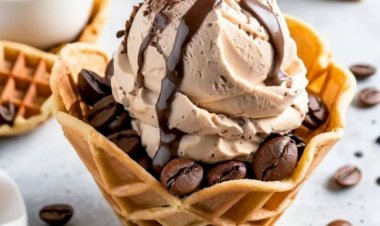Dog Food for Healthy Coat: The Ultimate Guide to a Shiny, Glorious Fur
Discover the best dog food for a healthy, shiny coat. Learn how salmon-based, protein-rich diets with omega fatty acids, biotin, and vitamin E improve skin and coat health in just 4–6 weeks.
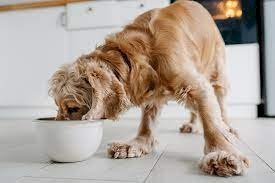
Every dog parent dreams of seeing their furry friend with a shiny, soft, and healthy coat. But the secret to that glow isn’t just regular brushing or grooming—it starts from the inside with proper nutrition. The food your dog eats directly impacts the condition of their skin and fur.
A well-balanced diet rich in high-quality protein, essential vitamins, minerals, and omega-3 & omega-6 fatty acids can transform a dull coat into one that looks vibrant and feels silky smooth. On the other hand, dogs that experience excessive shedding, brittle fur, dry skin, or constant itching are often showing signs of a nutritional imbalance.
In this guide, we’ll break down the best dog food for a healthy coat, the key nutrients to look for, and simple, practical steps to support your pup’s skin and coat health naturally—so they can shine from the inside out.
Why a Dog’s Coat Reflects Their Diet

Image source: www.petfoodaustralia.com.au
A dog’s coat isn’t just about looks—it’s a direct reflection of their overall health and nutrition. Just like humans need a balanced diet for glowing skin and strong hair, dogs rely on essential nutrients to keep their fur soft, shiny, and healthy.
How Nutrition Impacts Coat Health
- Proteins: High-quality protein is the building block of hair and skin. Without enough, your dog’s coat may look dull or patchy.
- Fatty Acids: Omega-3 and omega-6 fatty acids reduce inflammation, support skin hydration, and add a natural shine.
- Vitamins & Minerals: Vitamins A, E, and B-complex, along with minerals like zinc, play a vital role in preventing dryness, itching, and excessive shedding.
Diets lacking these nutrients often result in brittle hair, flaky skin, excessive shedding, or itching, which can make your dog uncomfortable and more prone to skin problems.
Expert Insights & Research
Veterinary dermatology research shows that diets enriched with omega-3 fatty acids can significantly improve coat shine and reduce dandruff within three months. The American Kennel Club (AKC) emphasizes that a dog’s coat condition is often the first visible sign of nutritional imbalance—a key reason why choosing the right diet matters.
Read: Looking to boost your skin’s radiance from the inside out? Don’t miss our guide on Healthy Foods for Glowing Skin: Nutrient-Packed Choices to Eat Nowfor nutrient-rich options that truly make a difference
Key Nutrients That Support a Healthy Coat

Image source: ivcjournal.com
A shiny, soft coat is more than just a sign of beauty — it reflects your dog’s overall health. Beyond calories, dogs need specific vitamins, minerals, and fatty acids to keep their skin nourished and their fur glossy. Here are the most important nutrients for maintaining a healthy, lustrous dog coat:
- Omega-3 Fatty Acids (EPA & DHA): Found in fish oil and flaxseed, these essential fatty acids help reduce skin dryness, itching, and inflammation while keeping the coat silky. Omega-3s also support joint health and overall immunity.
- Omega-6 Fatty Acids: Critical for producing natural skin oils, omega-6s (commonly found in poultry fat, sunflower oil, and safflower oil) make your dog’s coat shinier and softer. They work best in balance with omega-3s.
- High-Quality Protein: Hair is primarily made of keratin, a protein. A diet rich in high-quality animal protein ensures stronger hair follicles, reduces shedding, and promotes consistent hair growth.
- Biotin (Vitamin B7): Known as the “coat vitamin,” biotin strengthens hair structure, prevents brittleness, and supports healthy skin metabolism.
- Vitamin A: This fat-soluble vitamin plays a key role in cell growth and skin renewal, preventing dryness and flakiness that can dull your dog’s coat.
- Vitamin E: A powerful antioxidant, vitamin E protects skin cells from oxidative stress, reducing dryness and irritation. It also supports wound healing and immune defense.
- Zinc: Essential for regulating skin oil production and supporting a healthy barrier against infections. Adequate zinc keeps your dog’s skin balanced and their coat resilient.
Did You Know?
Although uncommon, zinc deficiency in dogs can lead to patchy fur, hair loss, and scaly skin. This condition, called zinc-responsive dermatosis, is most often seen in northern breeds like Siberian Huskies and Alaskan Malamutes.
Dog Food Ingredients That Make Fur Shine

Image source: storage.googleapis.com
When choosing dog food, don’t just pay attention to the marketing on the front of the bag—the real truth lies in the ingredient list. A shiny, healthy coat is a reflection of your dog’s nutrition, and certain ingredients play a powerful role in promoting skin health, hydration, and fur shine. Look for high-quality proteins, omega fatty acids, antioxidants, and vitamins. Here are some of the best dog food ingredients for a glossy coat:
1. Salmon & Sardines
These fatty fish are rich in omega-3 fatty acids (EPA & DHA), which reduce skin inflammation, prevent dryness, and make fur softer and shinier. Salmon oil and fish meal are also excellent sources commonly found in premium dog foods.
2. Eggs
Eggs provide biotin, amino acids, and high-quality protein, all essential for keratin production—the main structural protein in fur. Biotin, in particular, helps prevent dry skin and brittle hair.
3. Sweet Potatoes
Loaded with beta carotene, which the body converts to Vitamin A, sweet potatoes support healthy skin cell regeneration. They also provide slow-release energy and fiber for overall wellness.
4. Avocado Meal (Processed for Dog Food)
While raw avocado flesh can be risky in large amounts due to persin, many high-quality dog foods use safely processed avocado meal. It’s a source of Vitamin E, omega-9 fatty acids, and antioxidants, all of which nourish the skin and promote fur shine.
5. Leafy Greens & Berries
Spinach, kale, blueberries, and cranberries are packed with antioxidants, Vitamin C, and phytonutrients that protect skin cells from oxidative stress. They also boost immunity, which indirectly supports skin and coat health.
Ingredients to Avoid
Stay away from corn, soy, wheat, and animal by-product fillers. These cheap additives often provide empty calories, trigger allergies in sensitive dogs, and do little to improve coat health. Instead, focus on whole-food nutrition.
If you’re craving lighter, nutrient-packed meals full of authentic flavors, don’t miss our guide on Healthy Asian Food Recipes: Nourishing & Flavorful Dishes Better Than Takeout
Best Commercial Dog Foods for Coat Health in the U.S.
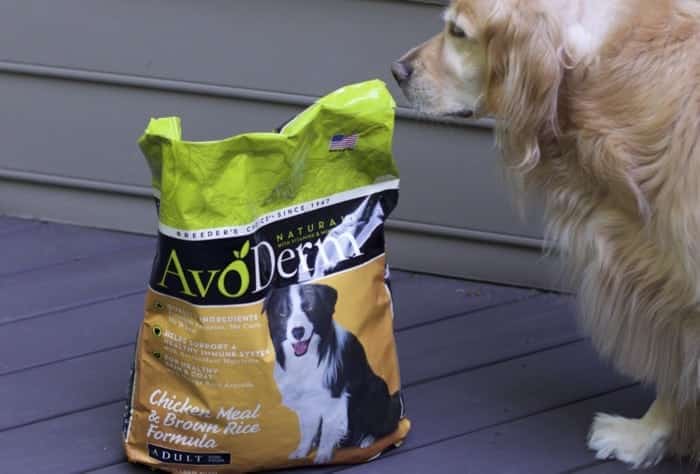
Image source: stayingclosetohome.com
A shiny coat and healthy skin aren’t just about looks—they’re key indicators of your dog’s overall wellness. Many commercial dog food brands in the U.S. now offer specialized skin-and-coat formulas designed to reduce dryness, itchiness, and dull fur. These recipes are especially beneficial for dogs prone to allergies, sensitive stomachs, or seasonal shedding.
Top Commercial Dog Foods for Skin & Coat Health
Here are some of the most recommended options in 2025:
- Blue Buffalo Life Protection Formula Skin & Coat Care
Features real salmon, flaxseed, and omega-3 fatty acids to support soft fur and reduce shedding. - Purina Pro Plan Sensitive Skin & Stomach Salmon & Rice Formula
Designed for dogs with digestive sensitivities while promoting glossy coats and healthy skin barrier function. - Hill’s Science Diet Sensitive Skin & Stomach
Backed by veterinary nutrition research, this formula includes vitamin E and omega-6 fatty acids for improved skin hydration. - AvoDerm Natural Skin & Coat Formula
Unique for its use of avocado, along with omega-rich oils, to support coat shine and immune health.
Key Nutrients for Coat Health
Most skin-and-coat dog foods contain:
- Omega-3 and Omega-6 fatty acids (from salmon, flaxseed, fish oil, and chicken fat)
- Biotin for strong, shiny fur
- Vitamin E as an antioxidant that supports skin repair and moisture retention
These nutrients help combat dullness, excessive shedding, and dryness while improving coat texture.
Market Insight: Why These Formulas Are Growing in Popularity
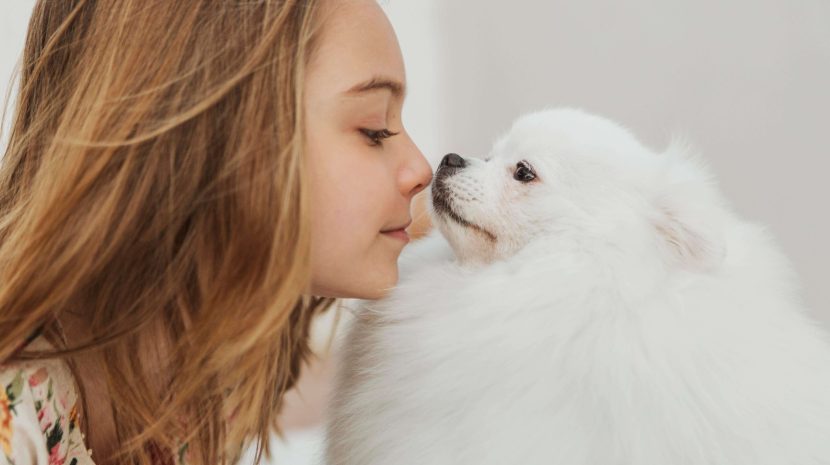
Image source: petchef.co.in
According to recent U.S. pet food market reports, more than half of dog owners factor in skin and coat benefits when choosing a diet. This makes “skin and coat support” one of the fastest-growing specialty categories in the pet food industry. With rising awareness of canine allergies and sensitivities, pet parents are increasingly prioritizing foods that support both digestive wellness and coat condition.
Pro Tip: If your dog has persistent skin or coat issues, consult a veterinarian before switching diets. Sometimes, food sensitivities, parasites, or underlying health conditions may require additional treatment.
Read More: If you love baking projects, don’t miss our detailed guide on the Sugar Cookie Decorating Kit: The Ultimate Guide to Buying & Using (2025) for tips, tools, and creative decorating ideas.
Fresh and Homemade Options

Image source: www.dogchef.com
Not all pet parents rely solely on commercial kibble. Many are now turning to fresh dog food delivery services such as The Farmer’s Dog and Nom Nom, which provide vet-formulated, nutritionally balanced meals. These often include whole-food ingredients like salmon, spinach, sweet potatoes, and lentils — all of which are excellent for skin hydration, shiny coats, and overall digestive health.
For those who prefer homemade dog food recipes, balance is critical. While adding cooked eggs, salmon oil, carrots, pumpkin, or green beans can boost nutrition, it’s essential to consult with a veterinarian or canine nutritionist. Dogs have specific requirements for protein, fats, vitamins, and minerals — and mistakes can lead to nutritional deficiencies or imbalances.
Pro Tip: Incorporating supplements like omega-3 fatty acids (from fish oil or flaxseed oil) can significantly improve coat texture, reduce shedding, and support joint health.
Real-World Example: In multiple surveys and case studies, dog owners who transitioned from low-quality kibble to fresh, salmon-based diets reported noticeable improvements — including softer fur, healthier skin, and increased energy levels within 6–8 weeks.
The Role of Omega Fatty Acids
Image source: encrypted-tbn0.gstatic.com
When it comes to nourishing your pet’s skin and promoting a shiny, healthy coat, omega fatty acids are true superheroes. These essential fats not only enhance coat luster but also support skin hydration, reduce inflammation, and strengthen the skin barrier.
Omega-3 Fatty Acids – The Skin Soothers
Omega-3s are anti-inflammatory powerhouses that help calm itchy, flaky, or allergy-prone skin. They can reduce redness, irritation, and hot spots while keeping your pet’s coat soft and glossy.
- Sources: Salmon oil, sardines, mackerel, flaxseed, and chia seeds.
- Benefits: Promotes skin elasticity, soothes inflammation, and supports joint and heart health alongside coat benefits.
Omega-6 Fatty Acids – The Coat Nourishers
While omega-3s calm irritation, omega-6 fatty acids are essential for maintaining a strong, moisturized skin barrier and enhancing the body’s natural oil production. This results in a sleek, shiny coat that resists dryness and brittleness.
- Sources: Chicken fat, sunflower oil, safflower oil, and evening primrose oil.
- Benefits: Encourages hair growth, improves coat texture, and keeps skin supple.
Finding the Right Balance
The key lies in the ratio. According to veterinary nutrition experts, the ideal omega-6 to omega-3 ratio is between 5:1 and 10:1. Too much omega-6 without enough omega-3 can actually increase inflammation and worsen skin irritation. For optimal coat and skin health, supplementation should be balanced, and it’s always best to consult with your veterinarian before making dietary changes.
Check: If you’re looking for seasonal events filled with food, fun, and community vibes, don’t miss our complete guide to the Sweet Corn Festival 2025: Dates, Locations & Family Fun Guide.
Protein and Its Impact on Fur Growth
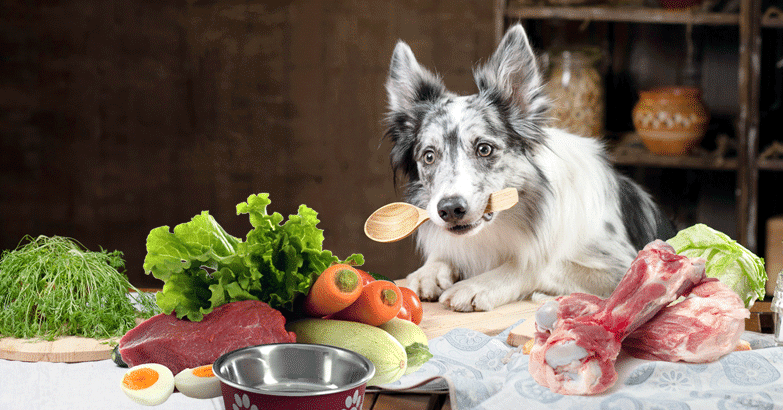
Image source: www.dogsnaturallymagazine.com
Fur and hair are primarily made of keratin, a structural protein. When a dog’s diet is deficient in protein, it can result in a dull, brittle, or thinning coat, and in severe cases, even slow regrowth after shedding. That’s why high-quality protein sources are essential for maintaining a shiny, strong, and healthy coat.
Why Protein Matters for Fur Health
- Supports keratin production – strengthening each strand of fur.
- Reduces excessive shedding – by improving follicle health.
- Promotes thicker, shinier coats – thanks to amino acids that nourish the skin and hair.
- Boosts overall immunity – since protein also plays a key role in muscle repair and immune system function.
Best Protein Sources for a Healthy Dog Coat
When choosing dog food, look for real meat or fish listed as the first ingredient instead of fillers. Some of the most beneficial lean protein options include:
- Chicken & Turkey – Easily digestible, rich in essential amino acids.
- Salmon & Fish – Packed with protein plus omega-3 fatty acids that reduce dryness and flakiness.
- Lamb – Gentle on sensitive stomachs while still providing high protein levels.
- Eggs – A complete protein source that supports both skin and fur health.
High-Protein Dog Food Formulas
Opting for high-protein dog food not only supports fur growth but also helps:
- Maintain lean muscle mass.
- Reduce shedding and breakage.
- Improve coat texture, making it softer, thicker, and shinier.
Tip for pet parents: Always check the dog food label. The closer “chicken,” “turkey,” “salmon,” or “lamb” appear to the top of the ingredient list, the more protein your dog will actually be getting.
Essential Vitamins and Minerals for Your Dog’s Skin and Coat Health
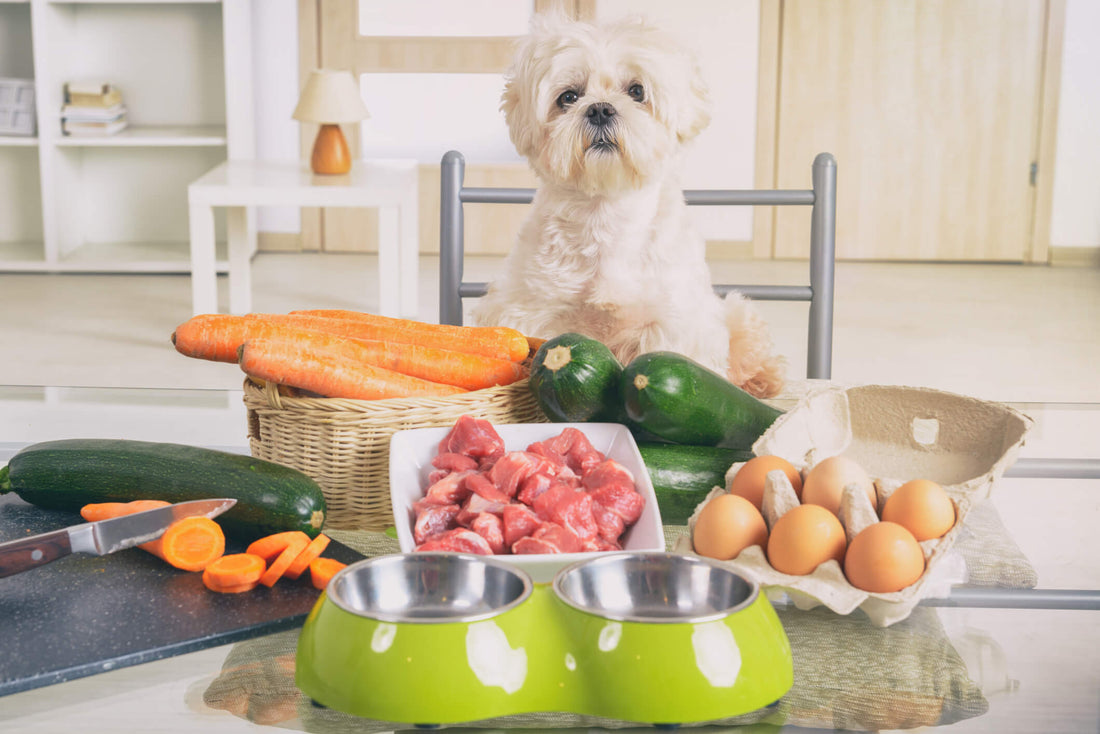
Image source: petwellbeing.com
When it comes to your dog’s overall wellness, certain nutrients act like natural “beauty boosters” that promote shiny fur, healthy skin, and strong immunity. Including these in their diet can make a visible difference:
- Biotin (Vitamin B7): Supports fur growth, reduces shedding, and helps maintain a thick, glossy coat.
- Vitamin A: Essential for skin cell regeneration, preventing dullness and flaky skin.
- Vitamin E: A powerful antioxidant that protects against oxidative stress, prevents dryness, and soothes irritation.
- Zinc: Regulates natural oil production, maintains skin elasticity, and strengthens hair follicles.
- Omega Fatty Acids (Omega-3 & Omega-6): Found in salmon oil, flaxseed, and fish meal—these reduce inflammation, ease itching, and boost coat shine.
Quick Dog Food Label Checklist
When shopping for dog food or supplements, here’s what to look for to ensure your pup is getting real nutrition instead of empty fillers:
High-Quality Protein First: Look for whole meat sources (chicken, beef, fish, or lamb) listed as the first ingredient.
Omega Sources: Salmon oil, flaxseed, or fish oil should be clearly included to support skin and coat health.
Added Vitamins & Minerals: Ensure biotin, zinc, vitamin A, and vitamin E are present for skin and coat nourishment.
No Cheap Fillers or By-Products: Avoid corn, wheat, soy, and artificial preservatives that can trigger allergies or dull fur.
By focusing on these nutrients, you’re not only improving your dog’s skin and coat but also supporting their immune system, joint health, and overall vitality. A nutrient-rich diet is the foundation of a happy, healthy, and radiant pup.
Also Check: If you love indulging in sweet treats, don’t miss our guide on Russian Food Recipes Desserts Edition: Cakes, Pastries & Sweets to Try in 2025.
Skin and Coat Problems Linked to Diet
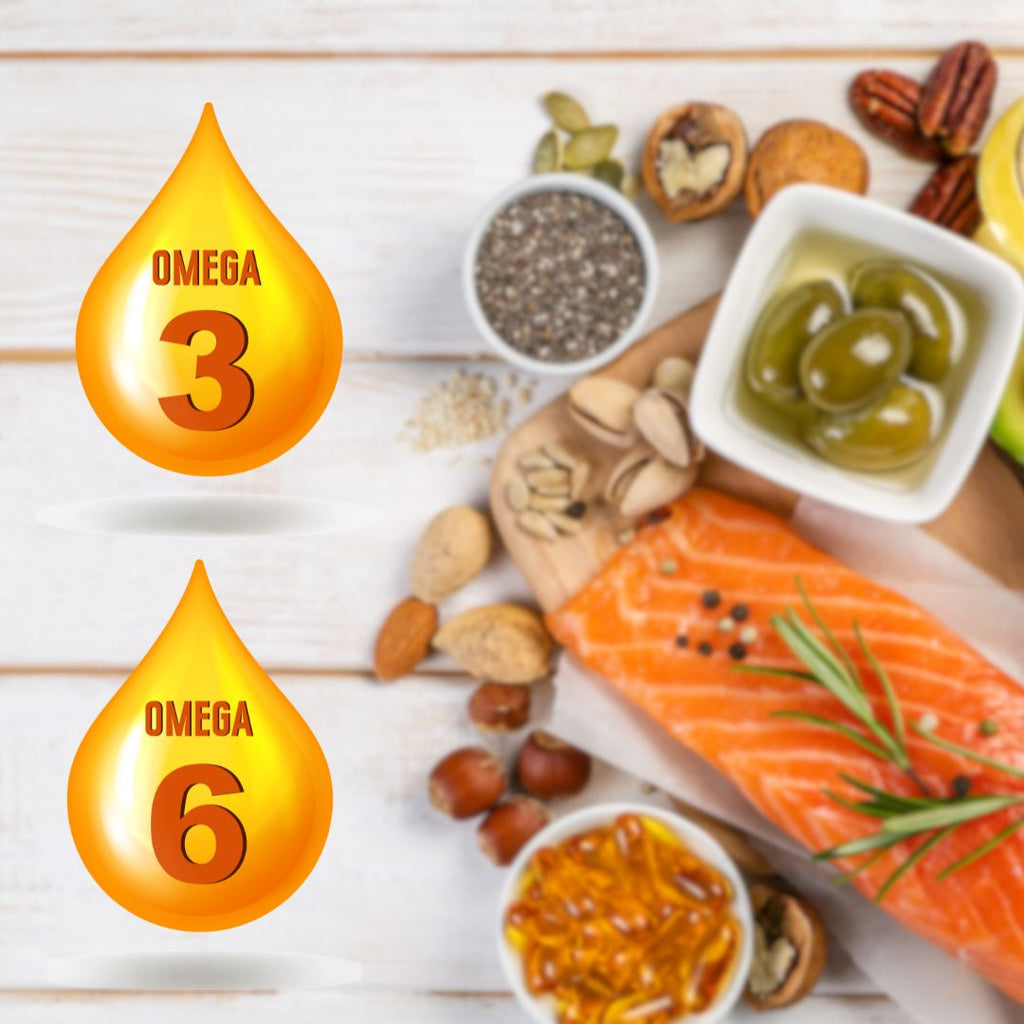
Image source: www.vedriti.in
Your dog’s skin and coat are powerful indicators of overall health. Nutritional deficiencies or food sensitivities often show up here first. Common diet-related skin and coat problems include:
- Dull or brittle coat – Often linked to a lack of omega-3 and omega-6 fatty acids, which are essential for a shiny, healthy coat.
- Excessive shedding – Can be caused by inadequate protein intake, since protein is the building block of strong, resilient hair.
- Itchy, red, or inflamed skin – May signal food allergies or intolerances. Common triggers include chicken, beef, wheat, or dairy.
- Patchy fur loss or thinning hair – Could point to vitamin or mineral deficiencies, such as low zinc, vitamin E, or biotin.
What You Can Do
If your dog shows persistent symptoms, consult your veterinarian. They may recommend:
- Transitioning to a hypoallergenic dog food or a novel protein diet (such as venison, duck, or salmon).
- Adding fish oil supplements or other omega-rich sources for coat health.
- Ensuring your dog’s diet includes a balance of high-quality proteins, vitamins, and minerals to prevent deficiencies.
A balanced diet not only supports a healthy skin and coat but also boosts your dog’s immunity, digestion, and energy levels.
Transitioning to a New Dog Food
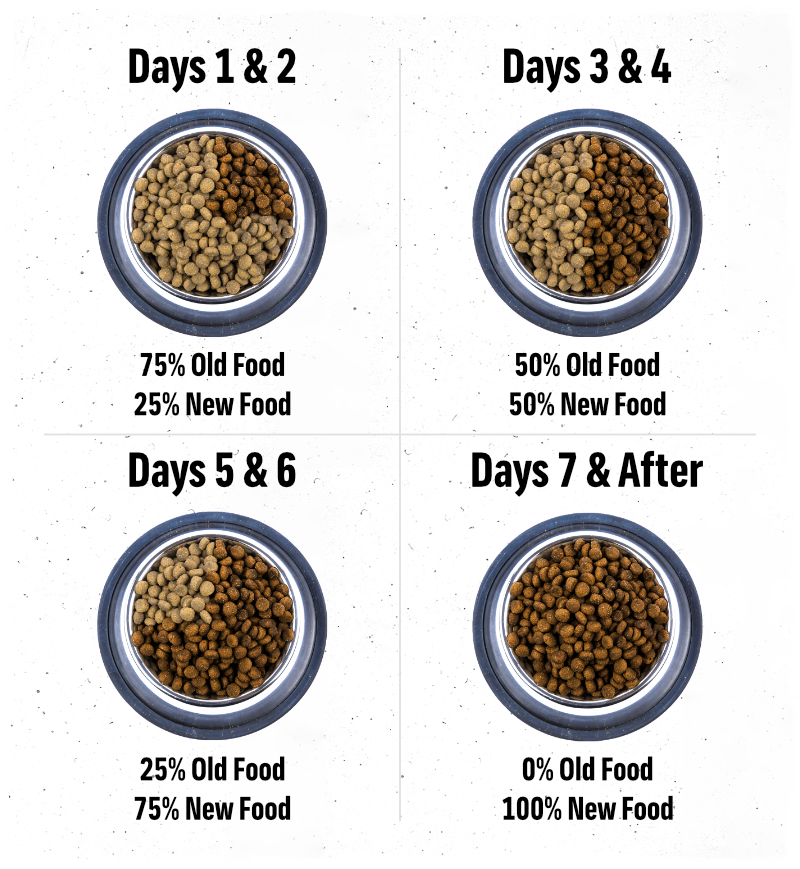
Image source: cdn.shopify.com
Switching your dog’s diet too quickly can lead to digestive upset such as diarrhea, vomiting, or loss of appetite. To keep your pup’s tummy happy, always transition gradually to the new food. Here’s a vet-recommended feeding schedule:
- Days 1–3: 75% current food + 25% new food
- Days 4–6: 50% current food + 50% new food
- Days 7–10: 25% current food + 75% new food
- Day 11+: 100% new food
Tip: If your dog has a sensitive stomach, stretch this process over 2–3 weeks instead of 10 days.
Signs the Transition is Working
As your dog adjusts, you may notice positive health changes, including:
- Reduced scratching or itching (indicating fewer food sensitivities)
- Shinier, healthier coat
- Improved digestion (firmer stools, less gas)
- Better energy levels and playfulness
Extra Tips for Success
- Always provide fresh water during the transition.
- Avoid adding table scraps or too many treats while switching foods.
- If you see persistent vomiting, diarrhea, or refusal to eat, consult your veterinarian.
- For puppies, senior dogs, or pets with health conditions, ask your vet about a tailored transition plan.
Supplements for a Healthy Coat and Skin
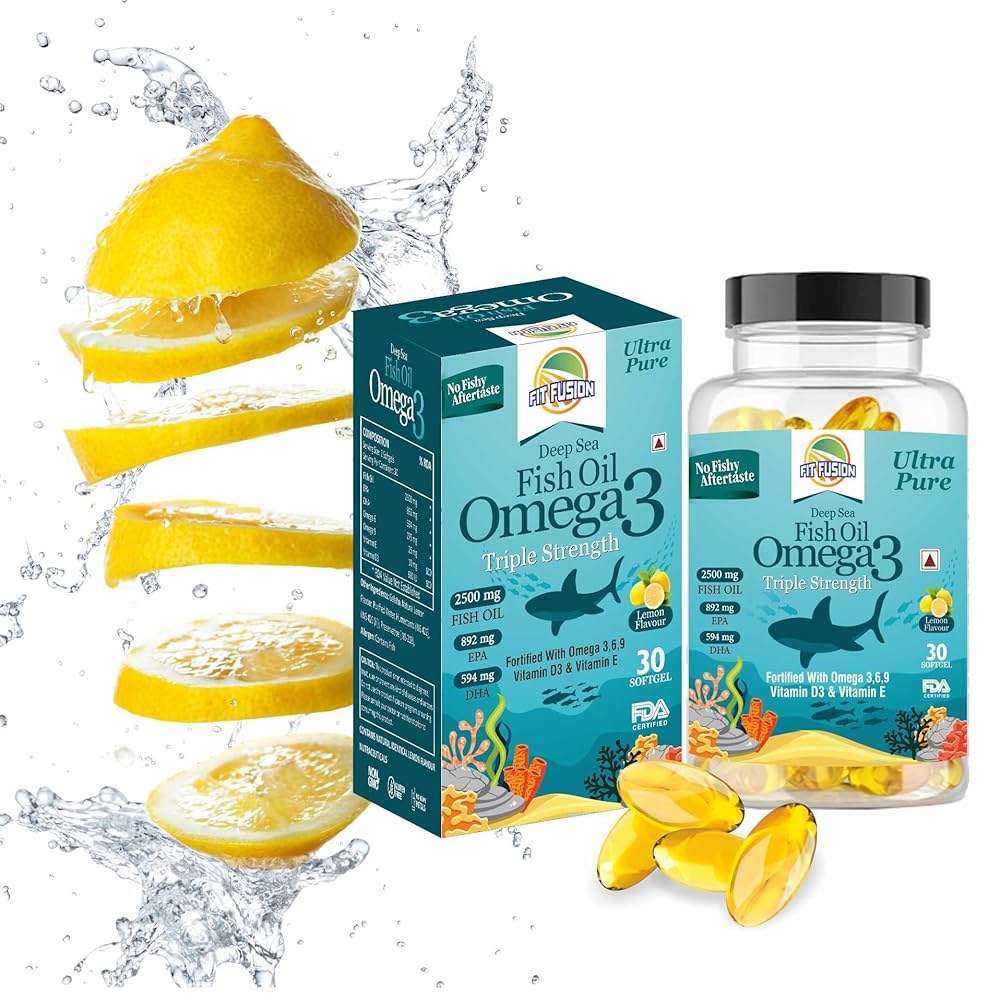
Image source: m.media-amazon.com
If a balanced diet alone doesn’t completely solve your dog’s coat or skin issues, supplements for skin and coat health can provide extra support. Always remember, these should complement—not replace—a complete and nutritious diet.
1. Fish Oil (Omega-3 Fatty Acids)
- Rich in EPA and DHA, fish oil helps reduce inflammation, soothe itchy skin, and promote a shiny, healthy coat.
- Omega-3s are especially beneficial for dogs with allergies, dry skin, or excessive shedding.
2. Coconut Oil
- Provides natural moisturizing properties to combat dryness and flakiness.
- May also support digestive health and improve overall coat texture when given in moderation.
3. Biotin (Vitamin B7)
- Known as the “hair growth vitamin,” biotin strengthens fur, reduces shedding, and supports healthy nail and skin function.
- Often recommended for dogs with brittle coats or slow regrowth.
4. Probiotics
- A healthy gut equals a healthier coat.
- Dog probiotics improve digestion, nutrient absorption, and immune health, which indirectly enhances skin condition and fur quality.
Tip: Always consult your veterinarian before starting any supplement to ensure the correct dosage and safety for your dog’s breed, age, and health condition.
If you love eye-catching treats, don’t miss our guide to 15 Colorful Desserts That Will Brighten Any Table in 2025
Grooming and Lifestyle Tips That Complement Diet
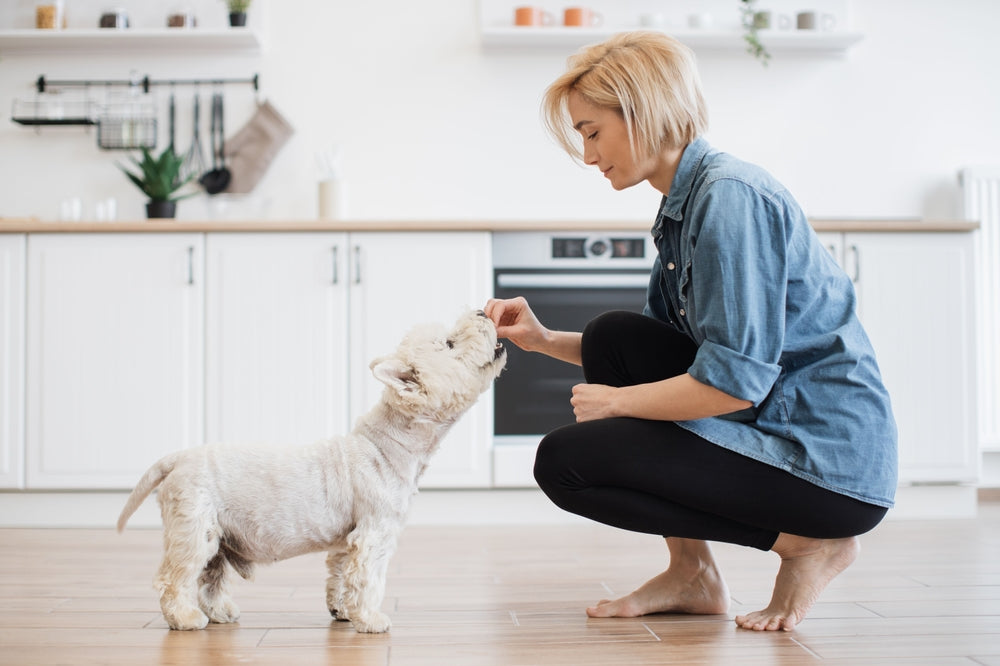
Image source: dogdelitreats.com
A healthy diet is only half the journey toward your dog’s overall well-being. Proper grooming and lifestyle habits are equally important for maintaining a shiny coat, strong immunity, and a stress-free life. Here are some expert-backed tips that complement your pet’s nutrition:
- Brush Your Dog’s Coat Regularly
Brushing helps distribute natural oils evenly, reduces shedding, prevents matting, and stimulates blood circulation to the skin. For long-haired breeds, daily brushing is recommended, while short-haired dogs may only need it a few times per week. - Bathe with a Gentle, Dog-Safe Shampoo
Avoid over-bathing, as it can strip away essential oils. A bath every 3–4 weeks with a mild, pH-balanced shampoo keeps your dog’s skin clean and free from irritants without causing dryness or itching. - Provide Fresh, Clean Drinking Water at All Times
Hydration plays a vital role in digestion, nutrient absorption, and skin health. Always ensure your dog has access to filtered or clean water to prevent dehydration. - Keep Dogs Active and Stress-Free
Regular walks, interactive play, and mental stimulation reduce anxiety and support weight management. Stress-free, active dogs are less prone to digestive issues, skin flare-ups, and behavioral problems. - Regular Vet and Grooming Checkups
Routine checkups not only catch early signs of health concerns but also keep nails trimmed, ears clean, and teeth healthy—all of which contribute to your dog’s comfort and longevity.
Signs Your Dog’s Food Is Actually Working
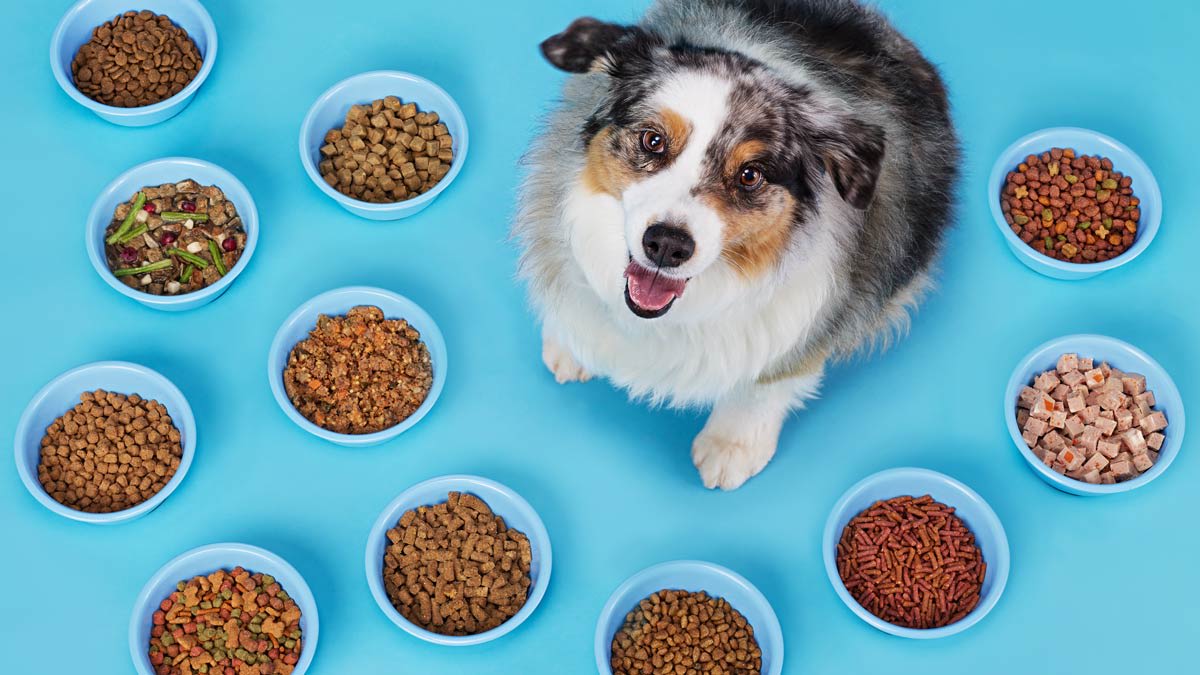
Image source: article.images.consumerreports.org
When you switch your dog to a new diet, it usually takes 4–6 weeks to notice visible results. During this adjustment period, you’ll start seeing signs that the food is truly benefiting your pup’s health and well-being:
- Shinier, Softer Coat – A high-quality dog food rich in omega-3 and omega-6 fatty acids supports a glossy, silky coat that’s easier to groom.
- Less Dandruff and Itching – Reduced skin irritation, flaking, and scratching often indicate that the new food has the right balance of nutrients and fewer potential allergens.
- Reduced Shedding – Healthy proteins, vitamins, and minerals can minimize excessive shedding, leaving your dog’s fur fuller and stronger.
- Healthier Skin Odor – Proper nutrition helps maintain your dog’s natural skin microbiome, leading to a fresher, cleaner smell.
- More Energy and Vitality – Balanced calories, protein, and healthy fats fuel your dog’s active lifestyle, making them more playful, alert, and engaged.
Pro Tip: If you don’t notice improvements within 6–8 weeks, or if your dog develops new symptoms (like digestive upset, dull coat, or persistent itching), it may be time to consult your veterinarian about alternative food options.
If you’re curious about the history, flavors, and growing popularity of this classic beverage, check out our complete guide on Stateside Iced Tea
Extra Tips for a Healthy, Shiny Dog Coat
Image source: encrypted-tbn0.gstatic.com
A glossy, healthy coat isn’t just about good looks—it’s a sign of your dog’s overall health. Beyond grooming, the right nutrition, breed type, life stage, and even the season all play a role in maintaining skin and coat vitality. Here are some expert-backed tips:
1. Breed Matters
- Long-coated breeds (like Huskies, Golden Retrievers, and Shih Tzus) often benefit from omega-3 fatty acids (from salmon oil, flaxseed, or fish-based supplements) to reduce shedding and maintain softness.
- Short-coated breeds (such as Beagles, Boxers, or Dalmatians) may thrive with extra vitamin E and zinc, which support skin barrier health and add shine to their coat.
2. Life Stage Nutrition
- Puppies need protein-rich diets with essential fatty acids to support rapid growth, skin development, and a soft puppy coat.
- Adult dogs require a balanced intake of protein, healthy fats, and micronutrients to maintain coat thickness and prevent dullness.
- Senior dogs often benefit from added omega-3s and glucosamine, which support both coat health and joint flexibility.
3. Allergies & Sensitivities
Dogs prone to skin allergies may have dry, itchy, or flaky coats. In such cases:
- Try hypoallergenic dog foods containing novel proteins like duck, venison, or lamb.
- For dogs with severe sensitivities, hydrolyzed protein diets can be easier on the skin and digestive system.
- Adding probiotics may also improve gut health, which is closely linked to skin condition.
4. Seasonal Adjustments
- Winter: Add omega-rich foods (like salmon oil) to combat dry, flaky skin caused by indoor heating and cold weather.
- Summer: Focus on hydration with moisture-rich foods and ensure plenty of fresh water to prevent coat dryness.
- Shedding seasons (spring and fall): A boost of high-quality protein helps support new hair growth, while omega-6s keep the coat glossy.
Pro Tip: Regular grooming combined with the right diet creates the perfect balance for a shiny, healthy coat. Always consult your vet before making major dietary changes or adding supplements.
Top 5 Dog Foods for Healthy Coat (2025)
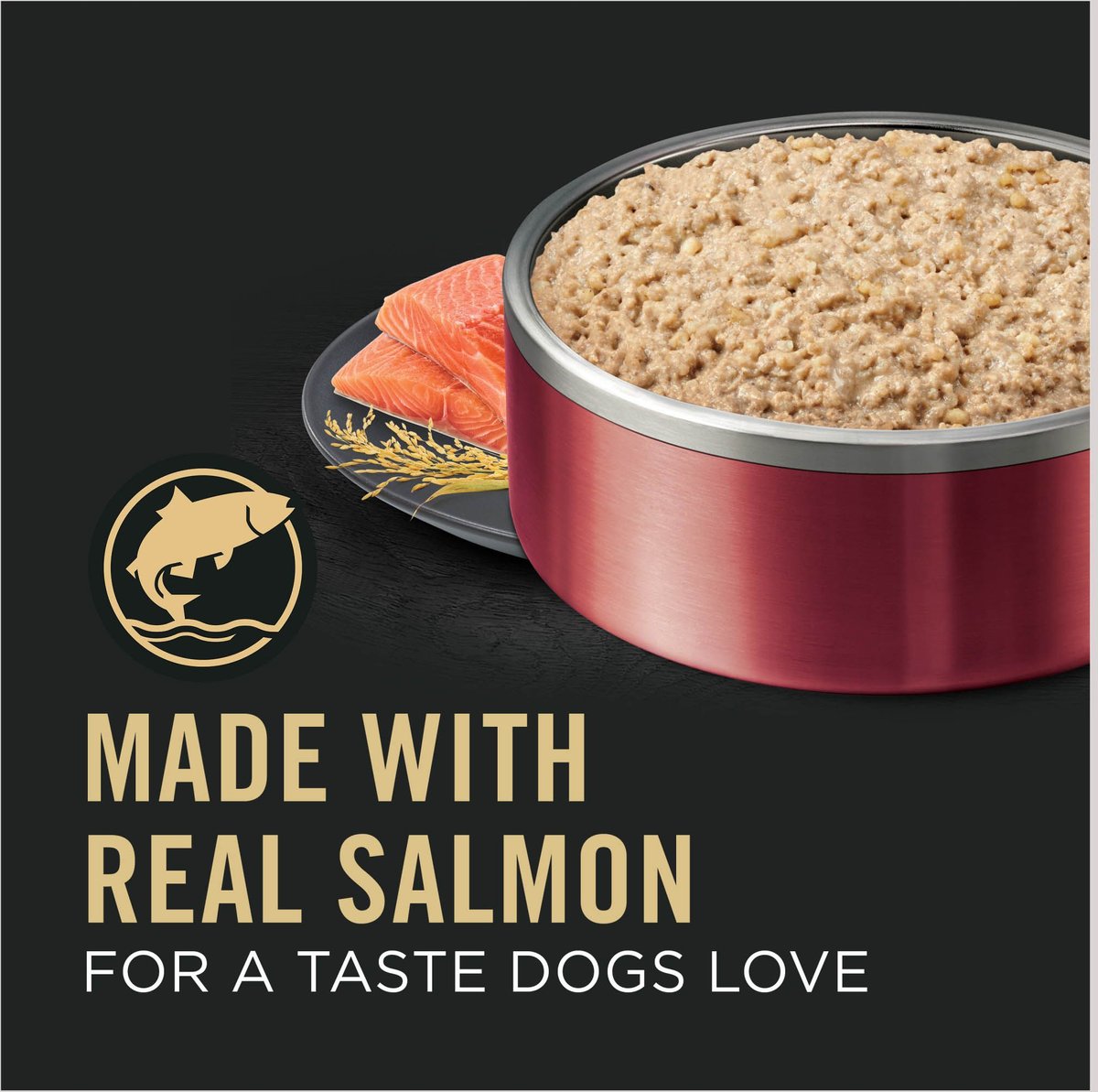
Image source: chuckanddons.com
A dog’s skin and coat health depend heavily on nutrition. The right diet rich in omega fatty acids, biotin, antioxidants, and high-quality proteins can reduce shedding, minimize dryness, and keep your pup’s coat soft and glossy. Here are the best dog foods in 2025 for skin and coat health:
1. Blue Buffalo Life Protection Formula – Skin & Coat Care
- Key Ingredients: Salmon, flaxseed, biotin, omega-3 & omega-6 fatty acids.
- Why It’s Great: This formula is rich in natural fish protein and essential oils that support skin hydration, reduce itching, and promote a shiny coat. Blue Buffalo also includes LifeSource Bits, a blend of vitamins and minerals for overall immune support.
2. Purina Pro Plan Sensitive Skin & Stomach – Salmon & Rice
- Key Ingredients: Salmon, rice, probiotics, prebiotic fiber, omega-rich oils.
- Why It’s Great: Specially made for dogs with sensitive digestion, this recipe not only improves gut health with probiotics but also provides EPA from salmon oil for strong skin and a glossy coat. A popular choice among vets for dogs with allergies or frequent itching.
3. Hill’s Science Diet Sensitive Skin & Stomach – Chicken Recipe
- Key Ingredients: Chicken, vitamin E, antioxidants, omega-6 fatty acids.
- Why It’s Great: This vet-recommended formula is gentle on the stomach while supporting skin repair and coat shine. The added antioxidants help combat inflammation, making it ideal for dogs with recurring dry skin or dandruff issues.
4. The Farmer’s Dog (Fresh, Human-Grade)
- Key Ingredients: Human-grade salmon, sweet potato, fresh vegetables.
- Why It’s Great: If you’re looking for a fresh dog food option, The Farmer’s Dog delivers balanced, lightly cooked meals tailored to your pup’s needs. Salmon provides premium-quality protein and omega fatty acids, while sweet potatoes add fiber and antioxidants for healthy skin.
5. AvoDerm Natural Skin & Coat Formula – Chicken & Avocado
- Key Ingredients: Chicken meal, avocado, flaxseed, natural oils.
- Why It’s Great: Known for its avocado-based formula, AvoDerm provides essential fatty acids that nourish the skin and promote a silky, resilient coat. It’s especially beneficial for dogs prone to shedding or brittle hair.
Pro Tip: Always consult your veterinarian before switching dog foods, especially if your dog has allergies, skin sensitivities, or chronic health conditions.
Cost of Skin & Coat Dog Food in the U.S.
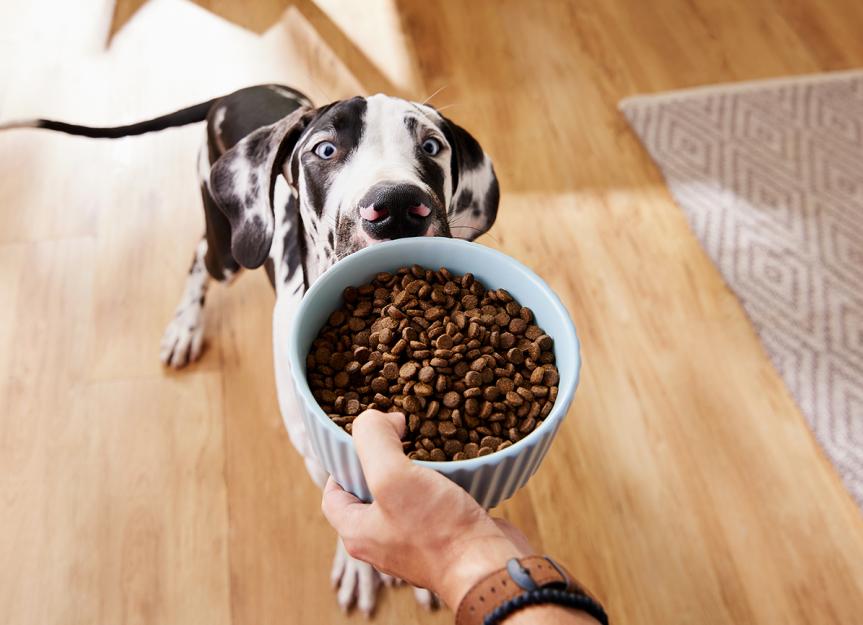
Image source: image.petmd.com
When it comes to improving your dog’s skin and coat health, the type of food you choose can make a huge difference. Specialized skin & coat dog food often contains added omega-3 fatty acids, fish oils, and high-quality proteins that promote a shiny coat and reduce issues like dryness or shedding. Below is a breakdown of the average cost of skin and coat dog food in the United States, based on food type and monthly feeding costs for a 50-pound dog.
|
Food Type |
Average Price per Pound |
Estimated Monthly Cost (50 lb Dog) |
|
Budget Kibble (basic formulas with added oils) |
$1.50 – $2.50 |
$50 – $80 |
|
Mid-Range Skin & Coat Formulas (grain-free, salmon, or fish-based kibble) |
$3.00 – $5.00 |
$90 – $150 |
|
Premium Fresh or Raw Diets (human-grade, freeze-dried, or fresh delivery services) |
$7.00 – $10.00 |
$200 – $300 |
Source: U.S. Pet Food Market Estimates, 2024–2025
What This Means for Pet Owners
- Budget Kibble: A good option if you want affordability while still supporting coat health. These usually include added oils but may use lower-cost protein sources.
- Mid-Range Formulas: Typically grain-free and fish or salmon-based, offering a balance between price and higher nutritional quality. Ideal for dogs prone to allergies or dry skin.
- Premium Fresh/Raw Diets: The most expensive option, often recommended for dogs with chronic skin issues or owners who prefer minimally processed, human-grade meals.
“If you’re a fan of authentic flavors and hearty sandwiches, don’t miss our full guide on Stateside Deli: Menu, Locations, and Reviews of This Classic Deli in 2025.
Popular Brand Comparison
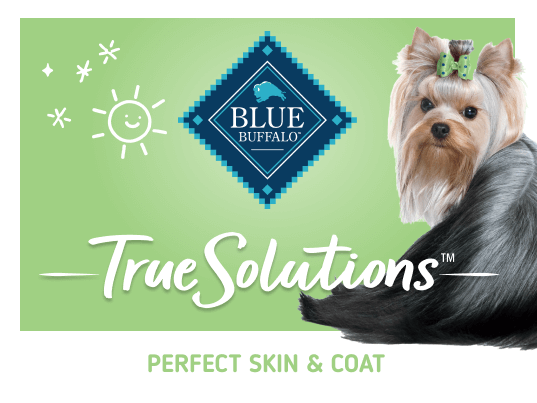
Image source: www.bluebuffalo.com
If you’re looking for the best dog food for healthy skin and a shiny coat, here’s a quick comparison of top-rated brands. Each option uses different protein sources, omega fatty acids, and added nutrients to support your pup’s overall well-being.
|
Brand |
Main Protein Source |
Omega Fatty Acid Source |
Key Added Nutrients & Benefits |
|
Blue Buffalo Skin & Coat Formula |
Salmon (rich in amino acids) |
Flaxseed (plant-based omega-3) |
Biotin & Vitamin E – supports skin hydration and fur strength |
|
Purina Pro Plan Sensitive Skin & Stomach (SS&S) |
Salmon (easily digestible protein) |
Fish Oil (high in EPA & DHA) |
Probiotics for gut health + Vitamin A for eye & skin support |
|
Hill’s Science Diet Adult |
Chicken (lean protein for muscles) |
Omega-6 fatty acid oils (like chicken fat) |
Antioxidants (Vitamin C & E) for immune health and skin repair |
|
AvoDerm Natural |
Chicken |
Avocado & Flaxseed (omega-3 & omega-6 combo) |
Vitamin B Complex for energy, metabolism, and healthy coat |
Key Takeaways
- Blue Buffalo: Great choice for dogs needing a salmon-based diet with biotin to prevent dry, flaky skin.
- Purina Pro Plan SS&S: Excellent for sensitive stomachs; the probiotics + fish oil combo makes it one of the best options for dogs with both digestive and skin issues.
- Hill’s Science Diet: Backed by veterinary nutrition science; ideal if you want strong antioxidant support along with skin health.
- AvoDerm Natural: Unique for its avocado content, offering natural skin-moisturizing oils and vitamins for coat shine.
Conclusion
A glossy, healthy dog coat is more than just a sign of beauty — it’s proof that your dog is thriving inside and out. The best dog food for skin and coat health goes beyond basic nutrition by combining high-quality protein, omega-rich fatty acids, and vital nutrients like zinc, vitamin E, and biotin. Together, these elements support strong hair growth, soothe dry or itchy skin, and give your pup that irresistible shine.
Whether you prefer premium kibble, fresh dog food delivery, or targeted supplements for coat care, the key is consistency and quality. When you choose nutrition designed for coat and skin health, you’re not just helping your dog look good — you’re boosting their immune system, joint function, energy, and overall wellness.
In the end, a healthy coat starts with a healthy diet. By investing in the right food today, you’re giving your furry friend the gift of comfort, confidence, and vitality for years to come.
FAQs on Dog Food for a Healthy Coat
Q: What dog food is best for a shiny coat?
A: Salmon-based or protein-first dog foods with omega-3, omega-6 fatty acids, biotin, and vitamin E are best for coat shine and skin health.
Q: How long does it take to improve my dog’s coat?
A: Most dogs show shinier coats and healthier skin in 4–6 weeks after switching to a nutrient-rich diet.
Q: Can supplements replace dog food for coat health?
A: No. Fish oil or omega supplements support coat health, but balanced high-protein dog food is essential.
Q: Does grain-free dog food improve coat health?
A: Not always. Grain-free diets help with allergies, but protein quality and fatty acids matter most for coat shine.
Q: What are signs my dog food isn’t working?
A: Dull fur, dandruff, shedding, itching, or flaky skin suggest the food lacks coat-nourishing nutrients.

 Selina Smith
Selina Smith 

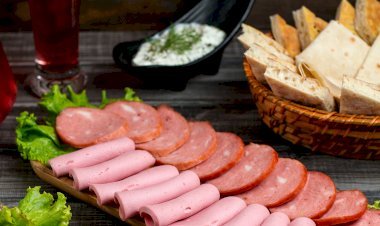
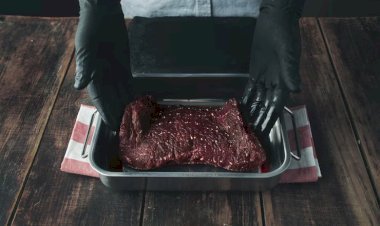
![Top 5 Brunch Dishes to Try at Stateside Kitchen Nashville [2025 Guide]](https://statesidemagazine.com/uploads/images/2025/05/image_380x226_68147889f1053.jpg)
